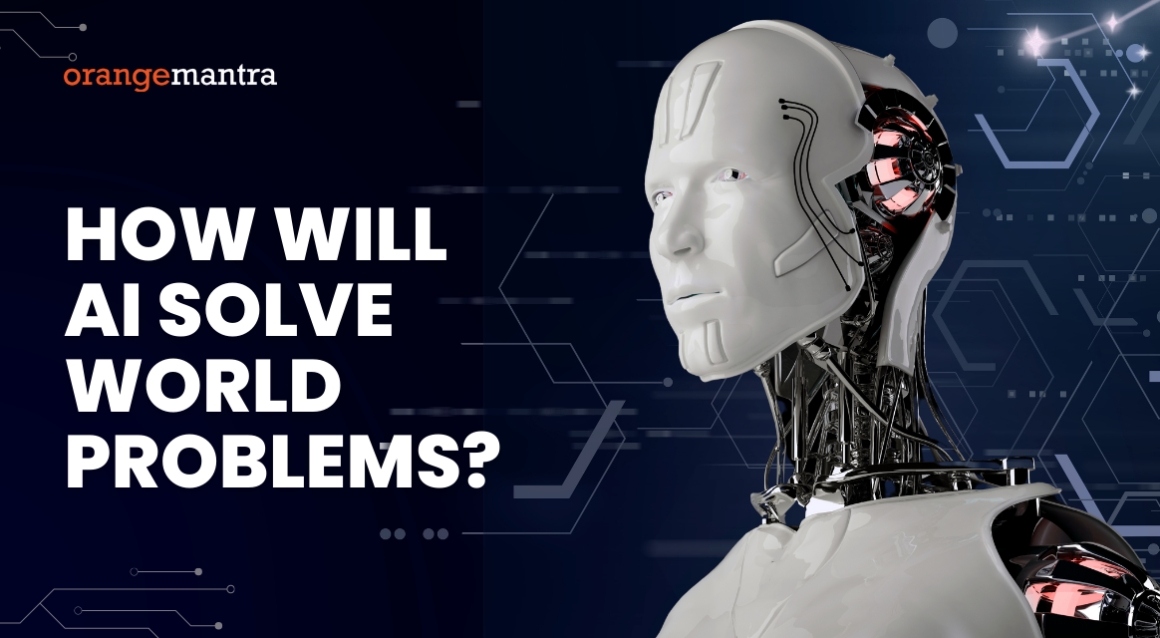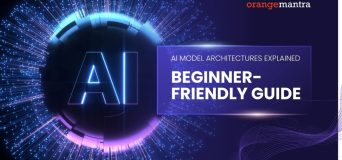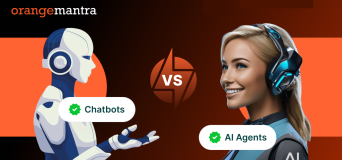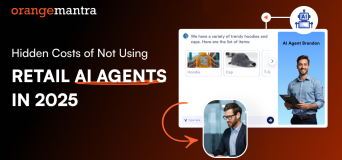Exploring AI’s Potential in Addressing Global Issues
Artificial Intelligence (AI) has arisen as a potent catalyst with the capacity to address critical global issues. It is actively applied in various fields, spanning healthcare, ecological sustainability, education, and disaster management, offering the prospect of enhanced efficiency, efficacy, and inventive solutions. In this article, we shall explore the avenues through which AI solve world problems alongside the obstacles it encounters and the ethical dimensions inherent to its use.
Healthcare and Disease Management
One of the most significant AI applications in contemporary society is within the realm of healthcare. AI holds the potential to completely transform disease diagnosis, drug discovery, and treatment methodologies. For instance, machine learning algorithms are currently undergoing training using extensive repositories of medical data, enabling them to identify patterns and predict diseases. This, in turn, has facilitated the earlier detection and more precise diagnosis of medical conditions such as cancer, diabetes, and heart disease.
AI-powered drug discovery represents another domain where substantial advancements are being realized. Traditional drug discovery is a protracted and expensive endeavor. Leveraging its capacity to scrutinize vast datasets and simulate molecular interactions, AI expedites this process significantly, potentially leading to the development of life-saving pharmaceuticals at a pace previously unattainable.
Furthermore, AI is actively contributing to the personalization of medical treatments. By scrutinizing a patient’s genetic information and medical history, AI can recommend individualized treatment plans, thereby reducing the likelihood of adverse reactions and enhancing patient outcomes.
See Also – Understanding AI and Automation
Environmental Conservation and Sustainability
The world’s environment is confronting a range of crises, encompassing climate change and deforestation. AI plays a central role in tackling these pressing challenges.
- Climate Change Mitigation: AI is helping to develop more efficient and sustainable energy solutions. Smart grids use AI to optimize energy distribution, reducing waste and carbon emissions. Machine learning models are also used to predict climate trends, which is essential for early intervention and policy planning. A report with Boston Consulting Group (BCG) shows that AI has the potential to help mitigate 5-10% of global greenhouse gas (GHG) emissions by 2030 — the equivalent of the total annual emissions of the European Union.
- Biodiversity Conservation: AI is assisting in monitoring and preserving biodiversity. Drones equipped with AI algorithms can survey vast areas to detect illegal logging and poaching activities. AI-powered cameras are used for wildlife tracking, aiding researchers in studying and protecting endangered species.
- Sustainable Agriculture: AI helps farmers optimize crop management by analyzing data on weather, soil conditions, and crop health. This results in higher yields and reduced resource usage. Precision agriculture, powered by AI, is a game-changer in reducing the environmental impact of farming.
Education and Personalized Learning
AI is reshaping the field of education by facilitating personalized learning experiences for students across various age groups. Adaptive learning platforms harness AI algorithms to evaluate each student’s performance individually and modify learning materials accordingly. This approach guarantees that students receive precisely the right level of challenge and support, ultimately enhancing their academic achievements.
AI-powered chatbots and virtual tutors are also coming to the fore, offering students instant assistance and feedback. These tools not only improve access to education but are especially beneficial for individuals in remote locations or those with special needs.
Furthermore, AI exhibits the capability to scrutinize extensive volumes of educational data to pinpoint trends and insights that can inform decisions on educational policies and enhancements to the curriculum. This can culminate in a more efficient and equitable educational system.
See Also – Generative AI in Automotive industry
Disaster Response and Management
When natural disasters strike, timely and efficient response is crucial. AI is aiding disaster management in several ways:
- Early Warning Systems: Machine learning models can analyze weather and geological data to predict the onset of disasters like hurricanes, earthquakes, and wildfires. This allows authorities to issue timely warnings and take preventive measures.
- Disaster Recovery: After a disaster, AI-powered drones and robots can be used to assess the damage and search for survivors in hazardous conditions. They can also assist in the repair and rebuilding process.
- Humanitarian Aid: AI helps coordinate and optimize the distribution of aid resources during crises. Predictive analytics can anticipate where aid is most urgently needed, reducing response time and improving the effectiveness of relief efforts.
Transportation and Urban Planning
AI is fundamentally reshaping urban transportation, introducing safer, more efficient, and environmentally sustainable modes of mobility in cities and urban areas.
- Autonomous Vehicles: The rise of self-driving cars and trucks, powered by AI technology, presents significant potential. These vehicles possess the potential to curtail accidents and alleviate traffic congestion while enhancing fuel efficiency. By relying on AI for navigation and decision-making, autonomous vehicles are on the cusp of revolutionizing the way people move around cities.
- Public Transportation Optimization: AI leverages its analytical capabilities to assess traffic patterns and passenger data, enabling the optimization of public transportation routes and schedules. The result is a reduced wait time and more convenient transit options for urban residents. AI is making urban commuting more accessible and user-friendly.
- Traffic Management: The introduction of smart traffic lights and cameras equipped with AI algorithms is revolutionizing real-time traffic management. AI-driven systems are adept at controlling traffic flow, mitigating congestion, and overall, elevating the urban transportation experience. These technologies are at the forefront of creating smoother, more efficient city travel.
See Also – AI Development Companies in India
Poverty Alleviation and Economic Development
AI plays a pivotal role in poverty alleviation and economic development through various avenues:
- Microfinance and Credit Scoring: AI algorithms have the capacity to evaluate the creditworthiness of individuals residing in underserved areas, thereby simplifying their access to microloans and financial services. This facilitates entrepreneurship, livelihood enhancement, and the potential to break the cycle of poverty.
- Job Creation: The expansion of AI technology itself has ushered in the creation of new employment opportunities. This encompasses a wide spectrum, ranging from AI developers India and data scientists to AI trainers. Additionally, AI can discern labor market trends and provide recommendations for workforce development programs, thereby equipping individuals with the necessary skills for emerging job prospects.
- Resource Allocation: AI is a valuable tool for governments and organizations in optimizing the allocation of resources for development projects. This ensures that funds are channeled towards areas where they can have the most significant impact on poverty reduction.
Ethical Considerations and Challenges
While AI holds immense potential for solving global problems, it also presents ethical challenges and risks that must be addressed:
- Bias and Fairness: AI algorithms can inherit biases present in their training data. This can lead to unfair or discriminatory outcomes, particularly in areas like criminal justice, lending, and hiring. Ensuring fairness in AI systems is an ongoing challenge.
- Data Privacy: The collection and use of personal data by AI systems raise concerns about privacy. Striking a balance between data-driven insights and individual rights is a complex issue.
- Job Displacement: The automation of tasks through AI can result in job displacement, potentially exacerbating unemployment and inequality. Preparing the workforce for the AI-driven economy is essential.
- Security and Misuse: AI can be used maliciously, from deepfakes to autonomous weapons. Ensuring AI is used for the benefit of humanity rather than harm is a significant challenge.
See Also – Everything About AI Video Analytics
In Conclusion
Artificial Intelligence holds the promise of tackling some of the most urgent global issues, spanning healthcare, environmental conservation, education, and disaster management. While the prospects are exhilarating, it is imperative to remain vigilant about ethical concerns and challenges like bias, privacy, job displacement, and security. As AI advances, collaborative efforts among governments, organizations, and society become indispensable for realizing its potential while mitigating its risks. Through prudent planning and conscientious implementation, AI has the potential to genuinely evolve into a global problem-solving instrument, enhancing the quality of life for individuals worldwide.
Frequently Asked Questions (FAQs)
Q1: Can you provide examples of specific AI applications in healthcare and disease management?
A1: Certainly! AI is transforming the healthcare landscape in myriad ways. For instance, within the realm of disease management, AI-driven diagnostic tools are steadily enhancing their precision. They’re adept at detecting a range of conditions, including cancer, diabetes, and heart disease, with increasing accuracy. Moreover, AI is actively contributing to the creation of customized treatment plans, meticulously analyzing patients’ genetic profiles and comprehensive medical histories to optimize care strategies.
Q2: How does AI address ethical concerns related to bias and fairness?
A2: Addressing bias and fairness in AI systems is an ongoing priority. Researchers and developers are working on techniques to mitigate bias in training data and algorithms. Additionally, many organizations are implementing guidelines and audits to ensure fairness in AI applications, particularly in areas like criminal justice, lending, and hiring.
Q3: What are the potential drawbacks of AI in solving global problems?
A3: While AI has immense potential, it also presents challenges. Job displacement due to automation is a concern. Ensuring that the workforce is prepared for the AI-driven economy is essential. Moreover, the potential misuse of AI for malicious purposes, such as deepfakes and autonomous weapons, is a significant challenge that needs to be addressed through regulations and ethical guidelines.











